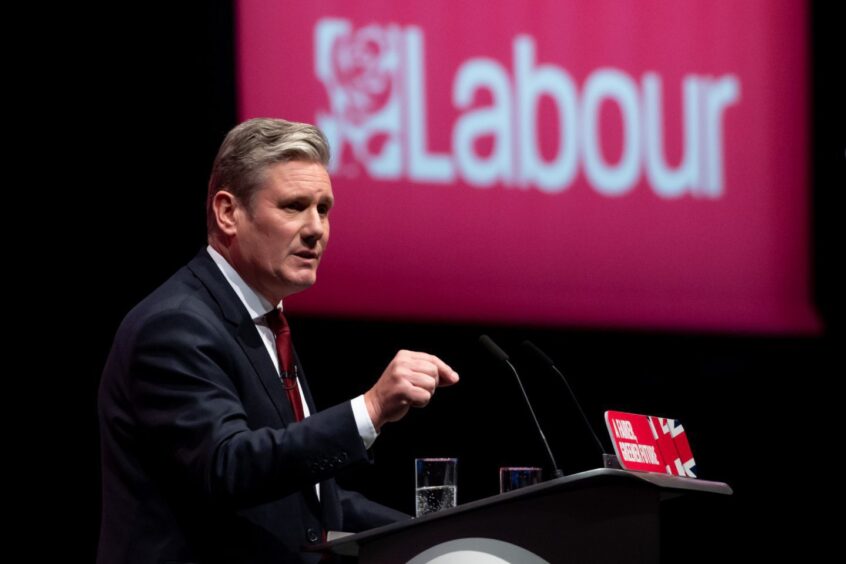
You have to go back half a century since energy featured as a major General Election issue.
Even then, it was the peg on which to hang other objectives rather than recognition of the sector’s importance as the engine of our society.
Edward Heath went to the country in February 1974 to ask “Who governs Britain?”
It was the trade union movement in general he was taking on and the electorate was confidently expected to provide a resounding endorsement of Heath’s hard line.
Then the Middle East oil crisis intervened, for which not even the National Union of Mineworkers could be blamed.
Heath’s response was to put the country on a three day week to conserve power and so energy security became a dominant issue. At that time, this really meant coal.
So Heath did not get the answer he expected. Instead, voters’ ambivalence produced a hung Parliament and another General Election later in the year which Heath lost narrowly.
Soon he was gone and replaced by Margaret Thatcher. The miners’ day of reckoning was delayed by another decade.
In Scotland, the 1974 elections were dominated by the question: “Scotland’s Oil?”. Again, this wasn’t really an argument about energy but about independence which, in some eyes, had been granted a new economic rationale. It took five years for that tide to go out, at least temporarily.
Thereafter, we got used to energy security at an affordable cost. Indeed, we produced more of the stuff than we needed from coal, nuclear, oil and gas. Happy days!
Mrs Thatcher privatised most things and symbolically closed down the Department of Energy since keeping the nation’s lights on was now a matter for private enterprise. So who needed government?
One looming problem always lay in a basic contradiction between two traditional imperatives of energy policy – affordability and security of supply. As long as the industry was publicly owned, the two went hand in hand.
Over-supply was a virtue, not a problem. In a privatised environment, profits depended on squeezing out surplus capacity, which created long-term dependency on imports.
By the time Labour came into power in 1997, a third imperative had emerged – the drive to reduce carbon emissions by encouraging renewables. But this produced another collision of priorities.
As I never tired of pointing out, the run-down of nuclear meant everything we did on renewables was running to stand still, in carbon reduction terms.
While these trade-offs were becoming more difficult to reconcile, they did not add up to a major political issue on which General Elections were fought.
Will it be any different this time? Certainly, there are plenty of energy ingredients in the current mix – recent memory of soaring bills; global supply insecurity; demand for a “just transition” to renewables; future prospects for the North Sea, to mention but a few.
As always, any sensible policy takes as its starting point the need to balance these three imperatives – security of supply, affordability and carbon reduction. Allow one to dominate unduly and the others go askew. These are the criteria against which politicians should be challenged over the next few weeks and manifestos judged.
As Ted Heath found out 50 years ago, no government will be forgiven by voters for failing to maintain security of supply, even in circumstances which are largely beyond its own control.
Equally, unaffordable energy prices are politically unsaleable as the Tories recently discovered to the Exchequer’s substantial cost.
The third imperative, now marketed as the “just transition” is the most subjective. It can mean largely what anyone wants it to mean with timescales to match.
Accordingly, it carries less threat of instant political retribution though there are risks in being captured by one particular interest group.
There are no certainties in General Elections (think, again, 1974 and also 1992 when expectations were overturned).
At this point, the widespread prediction is that there will be a Labour government and therefore, on energy as everything else, Labour policy is under the greatest scrutiny and subject to the most intensive lobbying.
While lobbying organisations always go through the courtesies of speaking to all parties, it is the one most likely to be in government that they really have to influence.
This is a reality which the oil and gas industry is as acutely aware of as anyone so it is hardly surprising that they are pressing Keir Starmer hard.
I think it was a mistake for Labour to embrace the mantra of no new North Sea licences. As I noted here last month, even the outgoing chief executive of the Climate Change Committee thinks that is a marginal issue in the drive for Net Zero.
Ultimately, pragmatism is likely to prevail and Labour should leave that door open – as should those currently seeking a re-think.
In contrast, the commitment to create GB Energy as a strong, interventionist force is an excellent Labour policy which, 40 years on, offers the chance to revive what Mrs Thatcher destroyed, a UK version of Statoil (now Equinor) which made Norway a worldwide force.
Fleshing out GB Energy’s role in the age of renewables should be the real focus of the campaign.
In this election, energy should feature as a prominent issue even if not a decisive one. The delusion that government is not responsible for our energy future is long since gone – and voters just might decide that “who powers Britain” is a question that really matters.
Recommended for you
